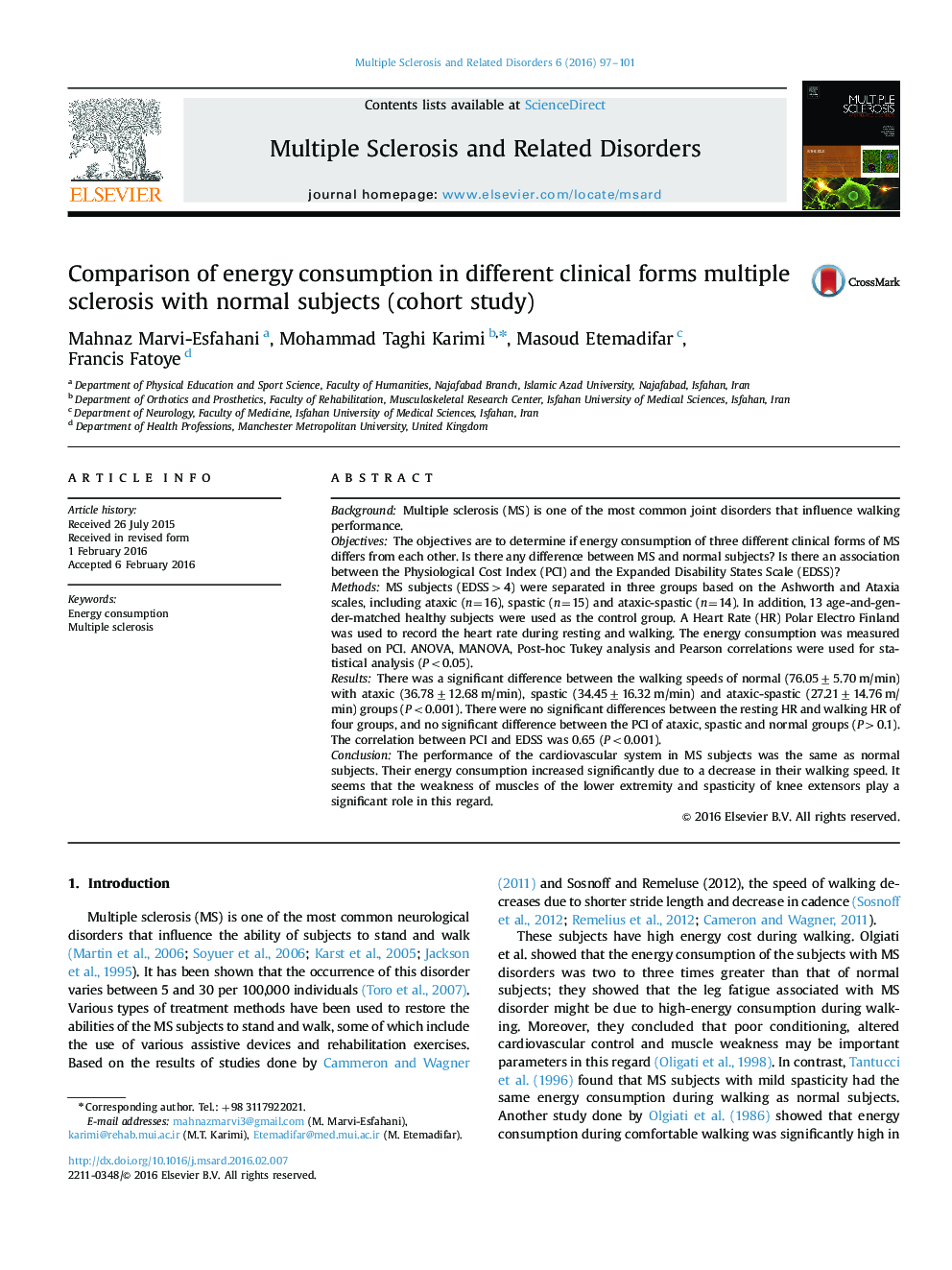| Article ID | Journal | Published Year | Pages | File Type |
|---|---|---|---|---|
| 2823809 | Multiple Sclerosis and Related Disorders | 2016 | 5 Pages |
•Energy consumption of the subjects with MS is more than that of normal.•Walking speed of MS subjects is less than normal subjects.•Spasticity of knee extensors influences energy consumption during walking.
BackgroundMultiple sclerosis (MS) is one of the most common joint disorders that influence walking performance.ObjectivesThe objectives are to determine if energy consumption of three different clinical forms of MS differs from each other. Is there any difference between MS and normal subjects? Is there an association between the Physiological Cost Index (PCI) and the Expanded Disability States Scale (EDSS)?MethodsMS subjects (EDSS>4) were separated in three groups based on the Ashworth and Ataxia scales, including ataxic (n=16), spastic (n=15) and ataxic-spastic (n=14). In addition, 13 age-and-gender-matched healthy subjects were used as the control group. A Heart Rate (HR) Polar Electro Finland was used to record the heart rate during resting and walking. The energy consumption was measured based on PCI. ANOVA, MANOVA, Post-hoc Tukey analysis and Pearson correlations were used for statistical analysis (P<0.05).ResultsThere was a significant difference between the walking speeds of normal (76.05±5.70 m/min) with ataxic (36.78±12.68 m/min), spastic (34.45±16.32 m/min) and ataxic-spastic (27.21±14.76 m/min) groups (P<0.001). There were no significant differences between the resting HR and walking HR of four groups, and no significant difference between the PCI of ataxic, spastic and normal groups (P>0.1). The correlation between PCI and EDSS was 0.65 (P<0.001).ConclusionThe performance of the cardiovascular system in MS subjects was the same as normal subjects. Their energy consumption increased significantly due to a decrease in their walking speed. It seems that the weakness of muscles of the lower extremity and spasticity of knee extensors play a significant role in this regard.
